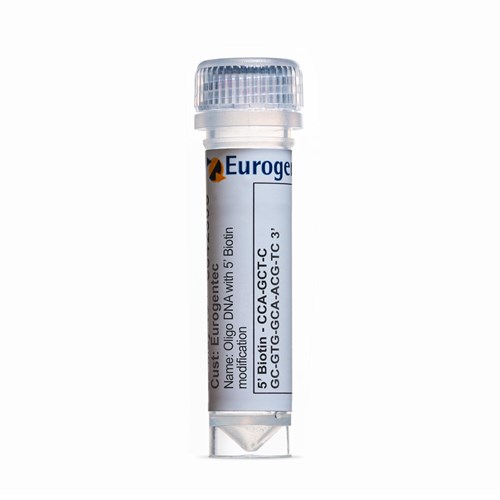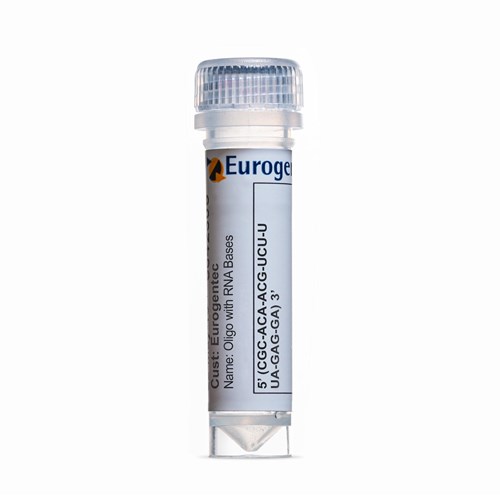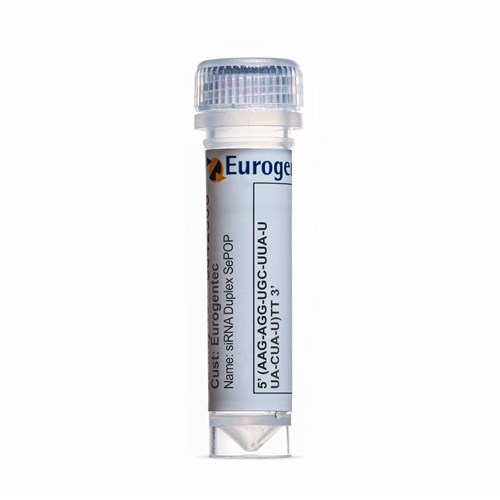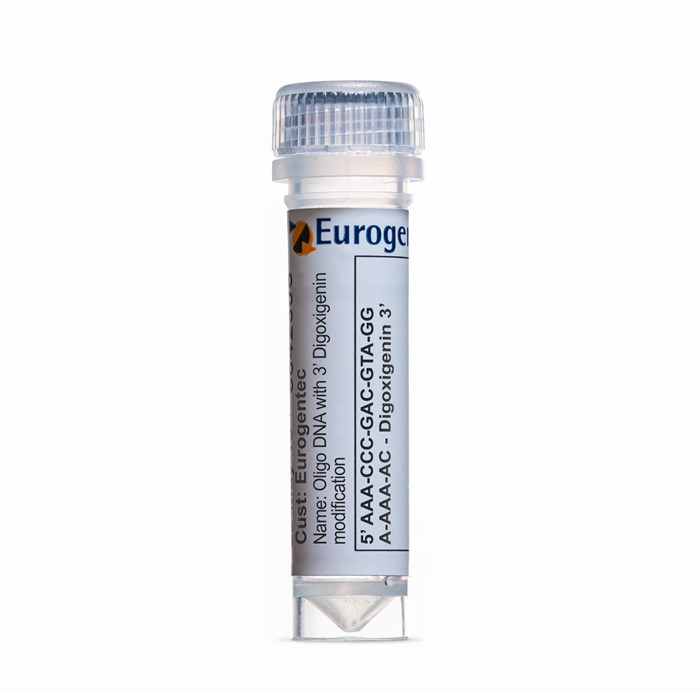3' Digoxigenin - 1 modification
- Cat.Number : MD-CN001-03004
- Manufacturer Ref. :
-
Availability :
In production
Like biotin, digoxigenin (DIG) is mainly used as a non-isotopic label for DNA and oligonucleotides in a wide range of applications: diagnostics, sequencing, blot applications, and in situ hybridization. The digoxigenin label can be detected with enzyme-linked immunoassays for anti-digoxigenin protein conjugates, and visualized through a chemiluminescent reaction.
Digoxigenin can be incorporated either, at both terminus, or within the sequence. Eurogentec produces these oligonucleotides by using an amino-modifier either dT, dR or C6 to create an attachment site for the digoxigenin moeity. The spacer arm between the nucleotide and the digoxigenin consists of a 12-atom chain.
Similar to the method used for biotin, we have shown that an oligonucleotide labelled with 3 digoxigenin moieties shows the best compromise between strand hybrid stability, detection limit, and probe cost. As with biotin, the best positions for these three labels are: one label at each of the termini, and one internal with at least 15 bases between the labels, or 3 at either end, each separated by HEG Spacer.
dR-Digoxigenin (deoxyribose-Digoxigenin) modification also allows the synthesis of oligonucleotides containing successive molecules of digoxigenin anywhere in the sequence or on either terminus. Each label is linked to the deoxyribose via a 6-carbon atoms spacer arm. Each dR-Digoxigenin can also be separated by a spacer (usually HEG).
Specifications
| Chemistry | |
| Molecular Mass/ Weight |
|
|---|---|
| Modification | |
| Modification Position |
|
| Post Synthesis Coupling |
|
| Storage & stability | |
| Resuspension condition |
|
| Storage Conditions |
|
| Activity | |
| Usage |
|
| Codes | |
| Code Nacres |
|
You may also be interested in the following product(s)



